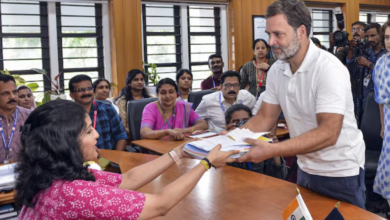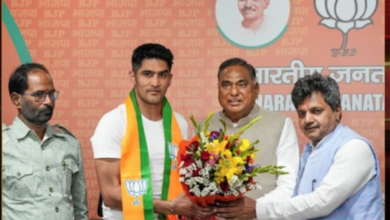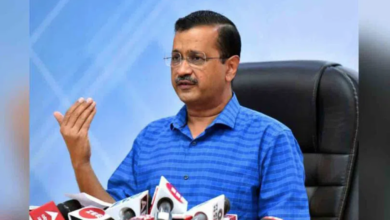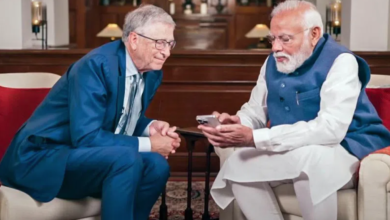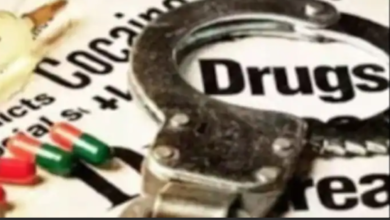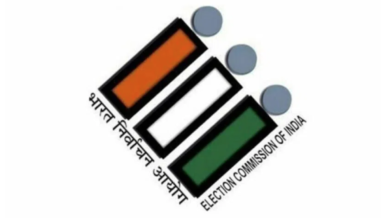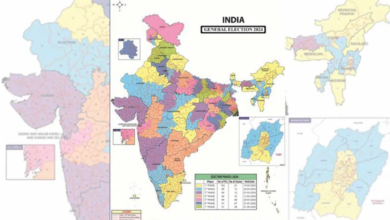JNU goes dark before students’ union planned to screen BBC’s Modi documentary
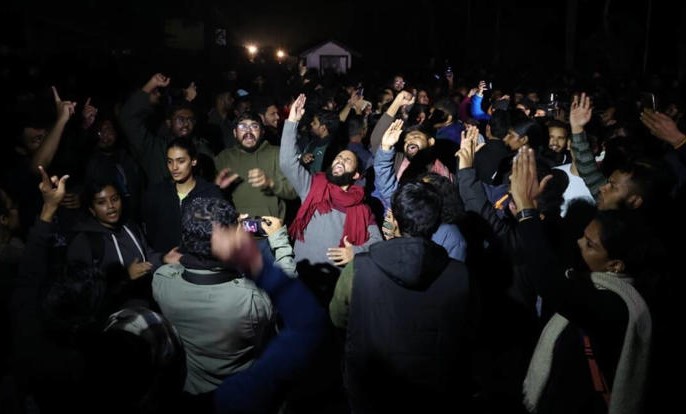
JNU students protest at the campus main gate. (Express Photo by Amit Mehra)
Plans by the Jawaharlal Nehru University Students’ Union to screen on campus the BBC documentary titled ‘India: The Modi Question’ ran into trouble Tuesday night as electricity in the university went off around 8.30 pm, roughly half an hour before the planned event, and students who opted to watch the film on their phones or laptops were pelted with stones.
JNU V-C Santishree Pandit and university Rector 1 Satish Chnadra Garkoti did not respond to repeated calls and SMSes seeking a response on whether electricity on campus had deliberately been disconnected. The deputy registrar, Ravi Kant Sinha, picked up the call but said he is not authorised to comment.

“We have been told by the JNU V-C and the university Registrar that it’s a massive power failure which has affected one-third of the campus. There is no deliberate attempt to cut power,” claimed an officer in the Education Ministry.
While the power went off around 8.30 pm, those who had gathered outside the students’ union office decided to screen the documentary on their phones and laptops “as a mark of protest” a little past 9 pm. At the time of reporting, streets and buildings on campus were still in the dark, with a professor saying even the quarters where teaching staff reside had no electricity. The professor called the situation “uncanny”.
Around 10.30 pm, some stones were thrown towards the crowd that had gathered to watch the documentary, but in the dark, it was not clear where they came from. A PhD student from the Centre for Political Studies alleged he had been hit in the shoulder, and around 10 others had received injuries too.
Following the incident, the students decided to march till the main gate, which they reached around 15 minutes later. The protest and sloganeering continued till past 11.30 pm.
When contacted about the power cut and stone pelting, DCP (Southwest) Manoj C said, “We haven’t received any calls. No such incident (has been) reported to us.”
According to sources, electricity is provided by the power discom at a centralised point in the JNU campus. Electricity is then distributed across the campus by university authorities independently.
A Masters’ student pursuing English literature said: “We have no electricity or internet in the hostels. We reached out to our warden but got no response.”
On Monday, the university administration had dissuaded students from going ahead with the screening. In a statement, it said: “No prior permission for this event has been taken from the JNU administration. This is to emphasise that such an unauthorised activity may disturb peace and harmony of the university campus. The concerned students/individuals are firmly advised to cancel the proposed programme immediately failing which strict disciplinary action may be initiated as per university rules.”
In response, the students’ union, which planned to screen the film at its office on campus, said: “The screening is a voluntary action by the students… Can you please specify the provision of the JNU Act/Statute/ Ordinances/ Rules and Regulations governing the University which mandates that prior permission is required from the administration for screening of any film/documentary on the university premises?”
They added: “By screening the documentary/movie, we do not seek to create any form of disharmony. The purpose of the screening is only to watch the documentary on campus. Only the students with voluntary interest would take part in the screening.”
The Centre recently ordered YouTube and Twitter to take down links sharing the BBC documentary. Officials said it has been found to be “undermining the sovereignty and integrity of India” and has “the potential to adversely impact” the country’s “friendly relations with foreign states” and “public order within the country”. The BBC documentary focuses on PM Narendra Modi’s and his then state government’s response to the 2002 Gujarat riots.
The last time JNU saw tension was in April 2022, when the campus saw protests over non-vegetarian food being served during Ram Navami.

